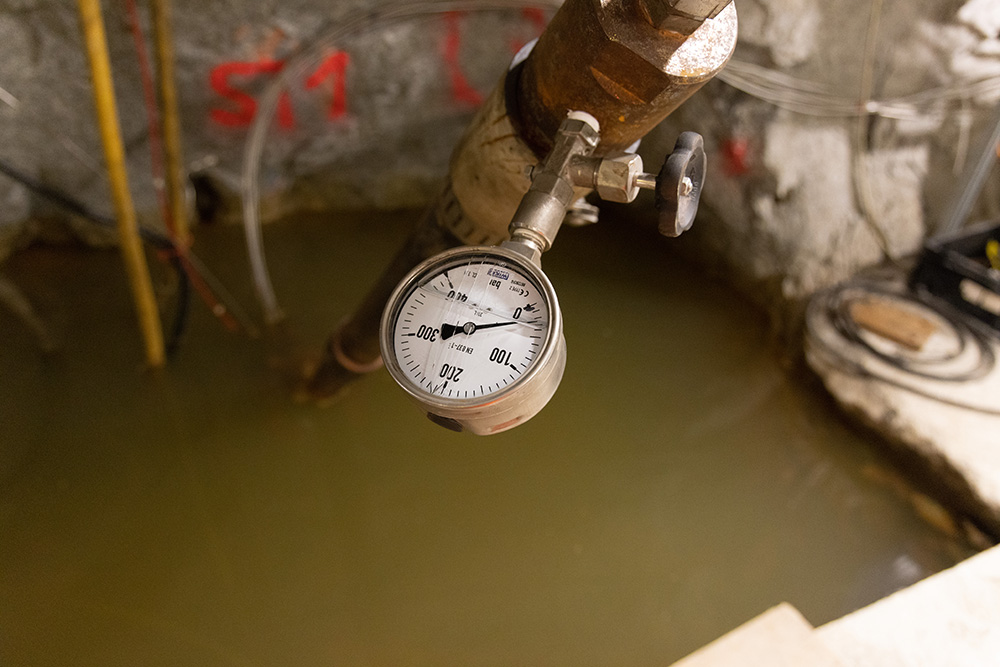Bedretto Underground Laboratory for Geosciences and Geoenergies
The BedrettoLab (Bedretto Underground Laboratory for Geosciences and Geoenergies) is a unique research infrastructure run by ETH Zurich making it possible to take a close look at the Earth’s interior. It is located in the Swiss Alps 1.5 kilometres below the surface and in the middle of a 5.2 kilometres long tunnel connecting the Ticino with the Furka railway tunnel.
Equipped with the latest technology, the BedrettoLab offers ideal conditions to conduct experimental research focusing on the behaviour of the deep underground when accessing and stimulating it. Such an access is required to advance scientific knowledge in various domains including geothermal energy and earthquake physics. It is also of relevance to develop novel techniques and sensors for these purposes.
2025-12-19
Conclusion of the second hot water injection
This week marked the successful conclusion of the second hot water injection of the BEACH project, bringing a productive and successful year for the BedrettoLab team to a close.
For now, BedrettoLab enters a brief two-week hibernation, recharging before the next ambitious phase begins. When it reopens in January, the team will turn its full focus to preparing the next large-scale experiment, a key component of the FEAR project.
2025-12-01
Second cycle of hot-water injection starting today
Today marks the start of the second cycle of hot-water injection into the granite reservoir at the BedrettoLab. This experiment builds directly on what we have observed in the first cycle.
The first cycle ended last week. It consisted of an injection phase of two weeks, a storing phase of 10 days, and the reopening of the borehole. The storing phase simulated a period during which the underground reservoir would rest before the stored heat is used. When we reopened the borehole, we examined how much heat remained in the water and the surrounding rock. As expected, much of the heat was either lost during the injection as the borehole is not thermally insulated or escaped by draining away from the reservoir. Despite this heat loss, measurements showed that the target part of the granite had warmed by about 10 °C.
In the upcoming second cycle, we will again inject and store hot water using the same temperatures and injection rates. However, we will not include a longer storing phase before using the stored heat to see the difference in the thermal balance. Because the borehole and the nearby rock are already warmer from the first cycle, we expect less heat to escape this time.
In a future experiment planned for 2026, we will insulate the borehole above the injection interval. This helps to minimise heat loss along its length during the injection of the hot water.


